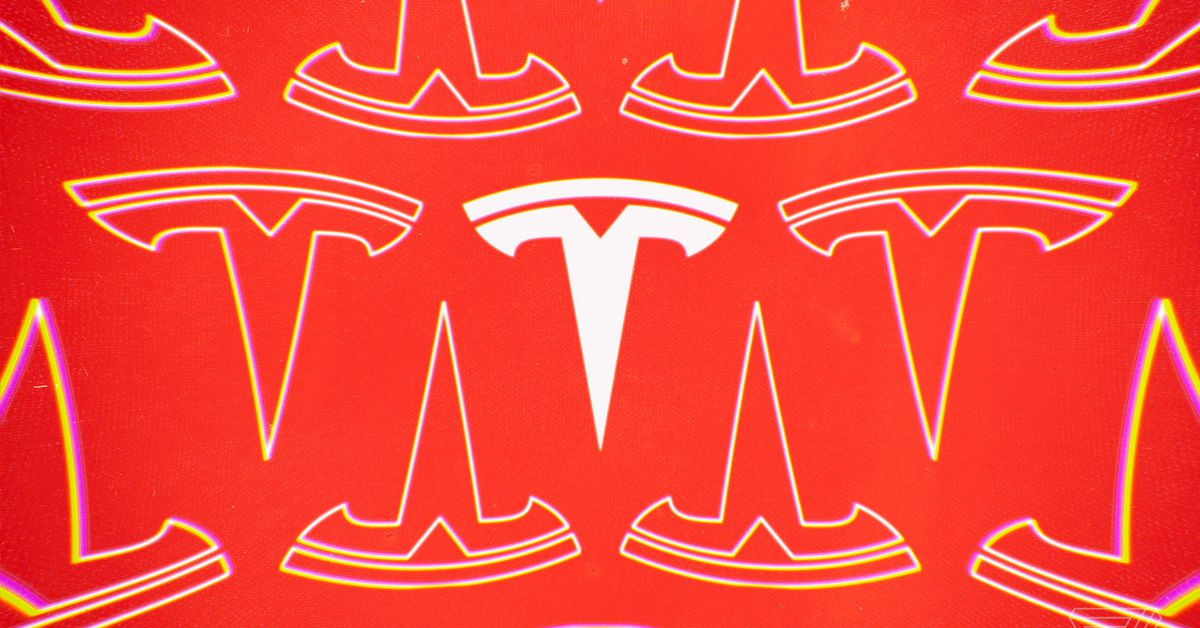
A Tesla Model Y was photographed in Florida sporting rooftop lidar sensors made by buzzy sensor manufacturer Luminar. The sighting caused a bit of a stir among Tesla watchers, given Tesla CEO Elon Musk’s well-established disdain for the laser sensors commonly used by autonomous vehicle companies to create 3D maps of their environment.
Even more notably, Tesla has reportedly entered a partnership with Luminar to use lidar for “testing and developing,” according to Bloomberg. What exactly this partnership entails we don’t know for sure — neither company is commenting. But it could point to some shortcomings in the technology Tesla is using to power its “Full Self-Driving” driver assist feature.
The vehicle was spotted last week in Palm Beach, Florida, by Grayson Brulte, a consultant for the AV industry who lives in the area. After Brulte tweeted the photos of the Model Y with a rooftop rack of lidar sensors on May 20th, Luminar’s stock surged to its highest level yet. (The Florida-based company recently went public after being acquired by a “blank check” special purpose acquisition company, or SPAC.)
Luminar sold the lidar to Tesla as part of an agreement between the two companies, according to Bloomberg. Also, the Model Y was sporting a manufacturer’s license plate that is registered to Tesla in California. The same plate has been spotted on other Tesla vehicles, including a prototype of the Cybertruck.
It’s unlikely that Tesla will reverse its position on lidar based on a single vehicle. As Guidehouse’s Sam Abuelsamid told Bloomberg, it’s more likely that Tesla is using Luminar’s lidar to validate its Full Self-Driving feature. But it’s still a noteworthy development given Musk’s vocal animosity toward the sensor. In a 2018 earnings call, Musk said, “In my view, it’s a crutch that will drive companies to a local maximum that they will find very hard to get out of.” He added, “Perhaps I am wrong, and I will look like a fool. But I am quite certain that I am not.”
Then a year later, he called lidar “a fool’s errand” during a presentation on Tesla’s efforts to build fully autonomous vehicles. “[A]nyone relying on LIDAR is doomed,” he added. “Doomed. Expensive sensors that are unnecessary. It’s like having a whole bunch of expensive appendices… you’ll see.”
Musk said Tesla is trying to tackle a much bigger problem: passive optical recognition. This is why Tesla is banking on cameras as the key piece of hardware for autonomous vehicles. With their ever-increasing pixel resolution and the low price point, camera sensors are seen as indispensable for advanced driver assistance systems (like Tesla’s Autopilot) and fully autonomous systems. For Tesla, cameras are everything.
Musk also walked back some of those comments in recent months. In a chat on Clubhouse, Musk admitted to “talking smack” about lidar but noted that SpaceX — his other company — has developed its own versions of the laser sensors to assist the Dragon capsule. In a recent earnings call, Musk spoke about moving away from using radar, stating, “We believe that a vision-only system is ultimately all that is needed for full autonomy.”
Luminar, which is based in Florida, went public last year via a reverse merger with a SPAC. That merger valued the company at approximately $2.9 billion in “implied pro forma enterprise value,” with an equity value of $3.4 billion at closing. Luminar is also working with Pony.ai, Airbus, Volvo, Audi, and Toyota Research Institute.
https://www.theverge.com/2021/5/24/22451404/tesla-luminar-lidar-elon-musk-autonomous-vehicles

